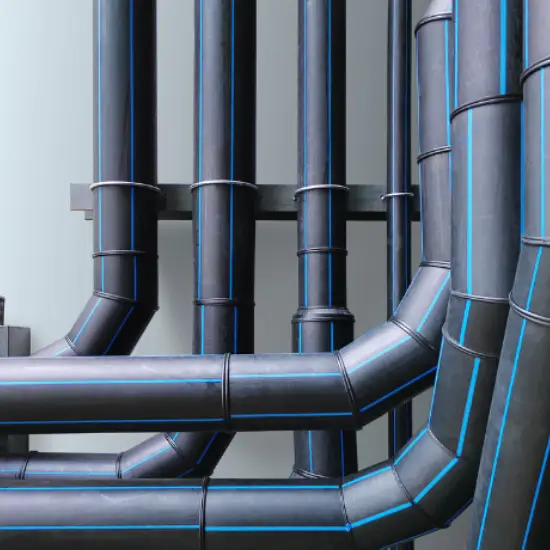HDPE Resin
HDPE Resin
HDPE stands for High-Density Polyethylene, and it is a versatile thermoplastic polymer. HDPE is a popular material known for its exceptional strength, durability, and chemical resistance. Here’s a comprehensive overview of HDPE, its manufacturers, and suppliers:
High-Density Polyethylene (HDPE): HDPE is a thermoplastic polymer derived from the monomer ethylene. It is characterised by a high density, making it exceptionally strong and suitable for various applications. HDPE is commonly used in the production of plastic bottles, pipes, containers, and a wide range of other products.
HDPE: HDPE stands for High-Density Polyethylene, and it is a type of thermoplastic polymer known for its high strength, chemical resistance, and versatility. It is used in various applications, from plastic bottles to pipes and plastic bags.
HDPE Plastic: HDPE is a common type of plastic used in a wide range of products due to its favourable properties. Its applications span from food packaging to construction materials.

Get Everything You Need To Know
How to make HDPE plastic
Creating HDPE (High-Density Polyethylene) plastic is a multi-step process with a global presence, including HDPE manufacturers in India. The primary raw material is ethylene, typically sourced from petroleum or natural gas. The polymerization of ethylene involves subjecting it to high temperature and pressure, forming long polyethylene chains with specific HDPE properties, such as high strength and resistance to chemicals and moisture.
HDPE is used in various applications, including packaging materials (such as bottles and containers) and pipes for water and gas distribution. In India, major players like Reliance Industries are known for their contribution to HDPE manufacturing.
HDPE resin suppliers in India play a crucial role in distributing this versatile material to meet the demands of various industries. They ensure that HDPE is readily available for applications that benefit from its robust properties.
In summary, HDPE is manufactured globally, with India being a significant contributor. The process includes ethylene polymerization, resulting in a versatile material with diverse HDPE uses, ranging from environmental protection with geomembranes to packaging and infrastructure with pipes. Both manufacturers and suppliers are essential to the HDPE production and supply chain.
Why is HDPE important?
High-Density Polyethylene (HDPE) is a crucial material with extensive importance due to its exceptional properties and versatile applications. Let’s explore why HDPE is essential and highlight the relevant keywords:
– HDPE manufacturers around the world, including HDPE manufacturers in India, play a pivotal role in meeting the demand for this thermoplastic. Their production ensures a steady supply of HDPE for various applications.
– HDPE resin suppliers, particularly those in India, contribute to making HDPE readily available for industries. This network of suppliers ensures that HDPE is accessible for applications requiring its unique properties.
– HDPE material is highly valued for its impressive properties. It is known for its strength, high-impact resistance, and exceptional chemical resistance, making it suitable for various applications.
– The material density of HDPE is notable; it has a high strength-to-density ratio, which contributes to its robustness and suitability for multiple applications.
– HDPE properties include being non-leaching, UV resistant, and resistant to most chemicals. These characteristics make it a preferred material in industries where safety and durability are essential.
– High-density polyethylene (HDPE) uses encompass a wide range of applications. It is commonly used in the construction industry for water supply, gas distribution, sewage and drainage systems, and industrial processes.
– In the agricultural sector, HDPE is vital for flow line irrigation, tube well pipes, drip irrigation, and pesticide spraying systems, contributing to efficient and sustainable farming practices.
– Its use in the production of plastic bottles, corrosion-resistant piping, geomembranes, and plastic lumber demonstrates the high-density polyethylene applications in providing solutions for environmental protection, infrastructure, and more.
In summary, the importance of HDPE lies in its ability to provide cost-effective, durable, and sustainable solutions for various industries, from agriculture and construction to environmental protection and beyond. The collaborative efforts of manufacturers and suppliers ensure its availability and relevance in modern application
What are the Properties Of HDPE Resin?
High-Density Polyethylene (HDPE) resin possesses a distinct set of properties that make it a valuable material in various industries. Below, we’ll explore the essential properties of HDPE resin and highlight the relevant keywords:
– HDPE manufacturers, including those in India, produce this resin, known for its remarkable characteristics.
– HDPE resin suppliers play a crucial role in the distribution and availability of this material, ensuring it reaches industries where its properties are needed.
– HDPE itself is renowned for its unique combination of properties, making it a sought-after thermoplastic:
– High Density: HDPE is known for its high strength-to-density ratio, which contributes to its robustness.
– Chemical Resistance: It exhibits excellent resistance to a wide range of chemicals, making it suitable for applications involving exposure to various substances.
– Durability: HDPE is highly durable and can withstand harsh environmental conditions, making it ideal for outdoor applications.
– Thermal Resistance: It can handle a broad temperature range, from sub-zero to elevated temperatures, without significant loss of properties.
– Non-Leaching: HDPE is non-leaching, ensuring that it doesn’t contaminate the contents it comes into contact with, which is crucial in applications like food packaging.
– HDPE material properties also include its ability to be easily moulded, providing flexibility in manufacturing processes.
HDPE resin is widely used in industries such as construction, packaging, agriculture, and more. It is employed in applications ranging from water pipes and geomembranes to plastic bottles and food packaging, where its properties, such as strength, chemical resistance, and non-leaching characteristics, are highly valued. The collaborative efforts of HDPE manufacturers and suppliers ensure that this versatile material is accessible to meet the diverse needs of these industries.
Top HDPE Resin Suppliers in India






Versatile Uses Of HDPE Resin
HDPE (High-Density Polyethylene) is a versatile and widely used plastic with a broad range of applications. Its popularity stems from its remarkable properties and diverse utility. Here’s an overview of what HDPE is used for, with a focus on the related keywords:
HDPE manufacturers globally, including those in India, produce this thermoplastic material, contributing to its widespread availability. They create HDPE through the polymerization of ethylene, resulting in a material known for its exceptional strength and resistance to chemicals and moisture.
HDPE resin suppliers in India play a crucial role in distributing this versatile material to meet the demands of various industries. This ensures that HDPE is readily available for applications that benefit from its robust properties.
HDPE is extensively used in a variety of industries. In the agricultural sector, it is employed for flow line irrigation, tube well pipes, drip irrigation, and pesticide spraying systems, making it a cornerstone of agricultural infrastructure. Furthermore, HDPE is widely utilised in the construction industry, particularly for sewage and drainage systems, as well as in water supply and gas distribution. This demonstrates its significance in providing essential services to communities.
The material’s exceptional properties make it ideal for multiple purposes, from pipes and storage bottles to environmental protection through geomembranes.
HDPE Manufacturers in India
India boasts several HDPE manufacturers, contributing to both domestic and international markets. Companies like Haldia Petrochemicals Limited have a significant presence in the Indian HDPE manufacturing industry.
HDPE Resin Suppliers in India
In India, there are numerous suppliers of HDPE resin, helping meet the growing demand for this versatile material. These suppliers often serve industries such as packaging, construction, and more.
Who Are The Hdpe Resin Suppliers In India?
HDPE Resin Suppliers in India play a crucial role in providing high-quality High-Density Polyethylene (HDPE) resin for various applications. Here’s an overview of these suppliers and the keywords integrated into the content:
- HDPE Manufacturers in India: India boasts a growing number of HDPE manufacturers that produce and supply HDPE resin, catering to the country’s diverse industrial needs. These manufacturers offer a wide range of HDPE products, from pipes to sheets.
- HDPE Resin Suppliers in India: Alongside manufacturers, several suppliers specialise in distributing HDPE resin across the Indian market. They serve as key intermediaries connecting manufacturers to end-users.
- PVC Resin: While HDPE primarily relates to high-density polyethylene, it’s important to note that PVC (Polyvinyl Chloride) is a different type of plastic resin commonly used in various applications. PVC Resin is distinct from HDPE and serves different purposes.
- PVC vs. HDPE: The comparison between PVC vs HDPE is significant in understanding the differences in their properties and applications. HDPE is known for its durability and resistance to chemicals and is often used in pipes and containers, while PVC is widely used in construction and electrical applications.
HDPE manufacturers and resin suppliers in India adhere to strict quality standards to ensure the supply of reliable and consistent HDPE resin products. These suppliers are instrumental in supporting industries such as agriculture, infrastructure, packaging, and more.
In summary, India has a robust ecosystem of HDPE resin suppliers and manufacturers, contributing to the country’s industrial growth. The differentiation between HDPE and PVC resin highlights the versatility and specific utility of each material in various sectors, aiding informed decision-making for businesses and industries across the nation.
How to mold HDPE plastic?
Molding High-Density Polyethylene (HDPE) plastic is a widely used process in various industries. Here’s a comprehensive guide on how to mould HDPE plastic:
- HDPE Manufacturers produce HDPE in the form of granules or pellets. These manufacturers can be found worldwide, including in India.
- HDPE Resin Suppliers play a vital role in the supply chain by providing the raw material to the manufacturers and end-users.
- HDPE moulding is a versatile process that involves various techniques, such as injection moulding, blow moulding, and extrusion.
- Injection Moulding: In this process, HDPE resin is heated and injected into a mould, where it cools and solidifies, taking the shape of the mould. It’s commonly used for manufacturing products like bottles, caps, and various plastic parts.
- Blow Moulding: This technique is used for hollow objects like bottles and containers. HDPE is extruded into a parison (a hollow tube), which is then placed in a mould. Compressed air is blown into the prison, expanding it to the shape of the mould.
- Extrusion: HDPE can also be extruded into various profiles and shapes, such as pipes and sheets, by forcing the melted resin through a die.
- HDPE moulding in India is prevalent, with numerous manufacturers and suppliers catering to diverse industries.
- HDPE exhibits excellent material properties, including high impact resistance, chemical resistance, and a wide processing temperature range, making it suitable for moulding.
How is HDPE plastic recycled?
Recycling High-Density Polyethylene (HDPE) plastic is an essential process for environmental sustainability. Here’s a guide on how HDPE plastic is recycled,
1. HDPE Recycling:
The process begins with the collection of HDPE materials, including containers, bottles, and various products made from HDPE plastic.
2. Sorting and Cleaning:
Once collected, the materials are sorted based on their resin type and cleaned to remove any contaminants like labels, caps, and dirt.
3. Shredding:
The cleaned HDPE materials are then shredded into small pieces, creating flakes or granules.
4. HDPE Manufacturers and Resin Suppliers:
These industry players often play a crucial role by reusing recycled HDPE to produce new products, reducing the need for virgin HDPE.
5. Melt Extrusion:
The shredded HDPE is then melted and extruded into various forms, such as sheets, pipes, or pellets, depending on the intended application.
6. High-Density Polyethylene:
HDPE, or high-density polyethylene, is favoured for recycling due to its recyclability and the “2” resin identification code associated with it.
7. End Uses:
The production of plastic lumber, playground equipment, containers, and more. HDPE manufacturers and resin suppliers often use recycled HDPE in their production processes, contributing to a circular economy.
8.Sustainability:
Recycling HDPE not only conserves resources but also reduces environmental impact, as it requires less energy and produces fewer greenhouse gas emissions compared to manufacturing from raw materials.

